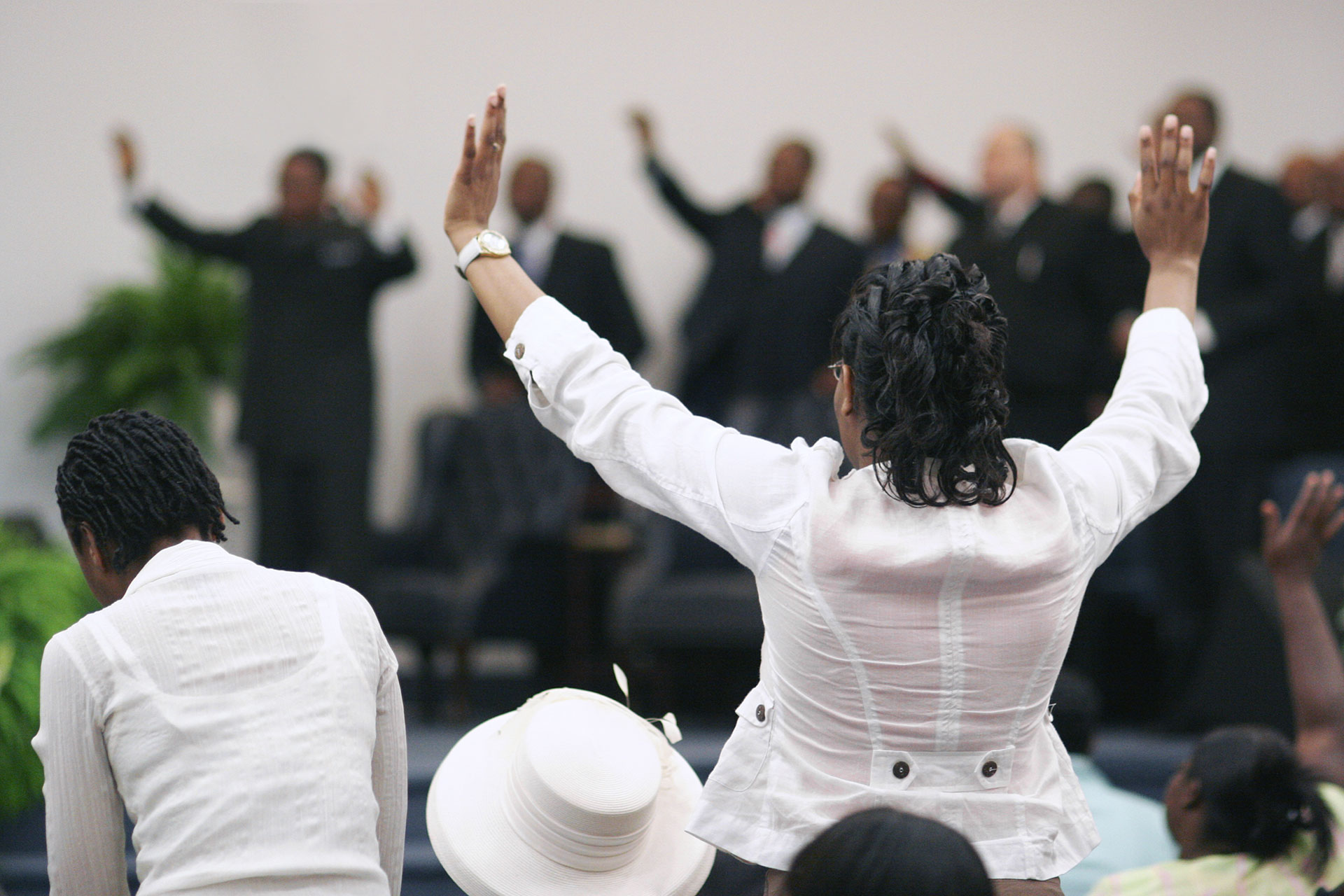Spotlight
The Art of Mutual Accountability
Published
2 years agoon

By Monte LeLaCheur
Major changes in life have a way of bringing new perspectives into our thinking. That has certainly been the case for me personally, having stepped down as the senior pastor at Turning Point Open Bible Church in Spokane, Washington, after serving for 29 years.
In total, I have spent over 46 years in vocational ministry, and it is more clear to me than ever before that there is a correlation between a Christian leader’s ability to maintain spiritual health and integrity and their willingness to embrace biblical accountability.
Yes, all of you be submissive to one another, and be clothed with humility, for “God resists the proud, but gives grace to the humble.”
1 Peter 5:5, NKJV
Let me make it perfectly clear that by “accountability” I do not mean the graceless micro-management that many of us fear. I am talking about the biblical principle of mutual submission within the body of Christ that provides us with the wisdom and encouragement that we cannot experience without accountability in community. Any Christian leader who truly understands their own limited wisdom and tendency to be driven by their pride or insecurities (and that’s every one of us) should actively seek out and welcome godly accountability.
The way Christian leaders and organizations have defined and implemented accountability has swung like a pendulum over time, and we have clearly seen that either too much or too little accountability is problematic. Yet I firmly believe that the Holy Spirit will help those with a willing heart to find the “sweet spot,” a level of accountability that protects our integrity and empowers us to fulfill the mission that He’s given us.
What will it take for this generation of leaders to find that “sweet spot” of biblical accountability that will allow us to fulfill the mission God has given us and, at the same time, maintain our health and integrity?
It’s all about relationships.
Let us think of ways to motivate one another to acts of love and good works. And let us not neglect our meeting together, as some people do, but encourage one another, especially now that the day of his return is drawing near.”
Hebrews 10:24-25, NLT
Christian leaders need one another! In fact, the New Testament contains 59 “one another” statements that fly in the face of the excuses we tend to use for not getting together with other pastors and leaders. Busyness, pride, and insecurity are the enemies of “one another relationships.” We need friendships with our peers. We need to laugh with each other, pray with each other, and sometimes even cry with each other. We need to share our stories and learn from one another’s successes and failures because it is relationships with our Christian peers that provide the basis for healthy accountability.
We must maintain daily spiritual disciplines.
It’s during seasons of frustration and discouragement that Christian leaders become the most vulnerable to the attacks of the enemy. We will all experience those seasons, and we know that it is our daily spiritual disciplines that will keep us steady and healthy. But our daily time sitting at Jesus’ feet – getting into the Word, worshiping, and praying – can easily be crowded out by the pressure to prepare our next sermon or answer emails. Over time we begin to realize that we have traded our identity as a “disciple of Christ” for that of a “Christian professional.”
Nonetheless, ministry is not just “a job”; it’s a “calling.” And the first responsibility of a true disciple is spending time at Jesus’ feet. It’s our daily spiritual disciplines that, like a lighthouse, shine a light on the rocks that endanger our soul.
Paul’s words to Timothy apply to every Christian leader:
Cling to your faith in Christ, and keep your conscience clear. For some people have deliberately violated their consciences; as a result, their faith has been shipwrecked .”
1 Timothy 1:19, NLT
Recently I finally got around to listening to The Rise and Fall of Mars Hill, a podcast produced by Christianity Today several years ago. I had previously read a bit about the demise of the Seattle-based Mars Hill church and knew that its founding pastor, Mark Driscoll, had been accused of abusive leadership practices that eventually led to his resignation and the closure of the high-profile, multi-site, mega-church. Even so, listening to the firsthand accounts of the staff and church members who had been wounded and disillusioned by a pastor and a church that they had once loved was incredibly painful. It was also an important reminder that every church is made up of imperfect people with imperfect pastors. That’s why accountability is so necessary for spiritual leaders.
We all need guardrails.
Whenever a Christian leader or church is “shipwrecked,” it leaves a multi-generational impact on the lives of people both inside and outside the church. This is true whether the original issue was a moral failure, financial misconduct, abusive leadership style, or some type of theological heresy. Yet many Christian leaders continue to resist any meaningful accountability.
Christian researcher George Barna writes this about the state of accountability in American churches:
One of the cornerstones of the biblical concept of community is that of mutual accountability. But Americans these days cherish privacy and freedom to the extent that the very idea of being held accountable by others – even those with their best interests in mind, or who have a legal or spiritual authority to do so – is considered inappropriate, antiquated, and rigid.*
Throughout my years of ministry, I have seen enough “shipwrecked” pastors and churches to realize that accountability is something we should not neglect. In fact, accountability is something we must embrace!
Embrace the “short leash.”
Early in my years of ministry I prayed, “Lord, please keep me on a short leash” in response to having witnessed the painful aftermath of several Christian leaders falling into moral or ethical failure. These people were gifted, seemingly sincere leaders whose actions had eventually destroyed their ministries, devastated their families, and severely damaged the body of Christ. It was heartbreaking to watch, but it also helped me realize how easy it is for any leader to go off the rails without the protection of serious guardrails and accountability in place. We should not depend on our denomination, or our church, or some other authority to be the sole source for those guardrails. The most effective guardrails in our lives are those born out of our personal convictions. But without meaningful accountability, there is no protection against the damage that can be done by careless or blatantly sinful leaders within our churches.
We need accountability with “teeth.”
In a podcast with Carey Nieuwhof, Tim Keller, author and former pastor of Redeemer Presbyterian Church in Manhattan, talked about current attitudes among Christians toward church denominations. He especially caught my attention when he said that although denominationalism is on the decline, there will always be a need for the oversight of churches because there will always be situations that require someone (other than the local pastor or church board) who has the spiritual and legal authority to intervene when things fall apart. In other words, situations can arise in a church or Christian organization that require a level of accountability with “teeth.”
There are times when a pastor and his board are unable to come into agreement. There are situations in which conflicts in a church have escalated beyond the church’s ability to even discuss in a constructive manner. For the sake of everyone involved, someone needs to have the authority to step in and make the tough decisions.
Obey your spiritual leaders, and do what they say. Their work is to watch over your souls, and they are accountable to God. Give them reason to do this with joy and not with sorrow.”
Hebrews 13:17, NLT
Every church and Christian organization needs to have leaders who will lovingly and firmly hold their members accountable to their doctrinal statement and their policies and principles. It’s a tough job that requires making some very tough decisions, decisions not everyone will fully understand or agree with. But without leaders who will hold God’s people accountable, the name of Jesus gets dragged through the mud.
That’s why I want to encourage my fellow brothers and sisters in Christ to continually pray for our leaders and, as Hebrews 13 directs, “Give them reason to do this with joy and not with sorrow”.
Consider the following steps:
- Take a minute right now to evaluate your own commitment to building positive relationships with other pastors and leaders. What needs to happen to make this a priority in your life?
- Evaluate the state of your daily spiritual disciplines. If you are too busy to spend time sitting at Jesus’ feet, what adjustments can you make as soon as possible?
- Consider what it would mean for you to make peace with the concept of letting God keep you on a “short leash” – not because it’s being forced on you, but because you never want to wander far from Him.
- Last, take time right now to pray for our leaders who are tasked with holding others accountable. Ask the Lord to strengthen and encourage them. Maybe take a minute to write or email them.
*barna.com/research/national-study-describes-christian-accountability-provided-by-churches
About the Author
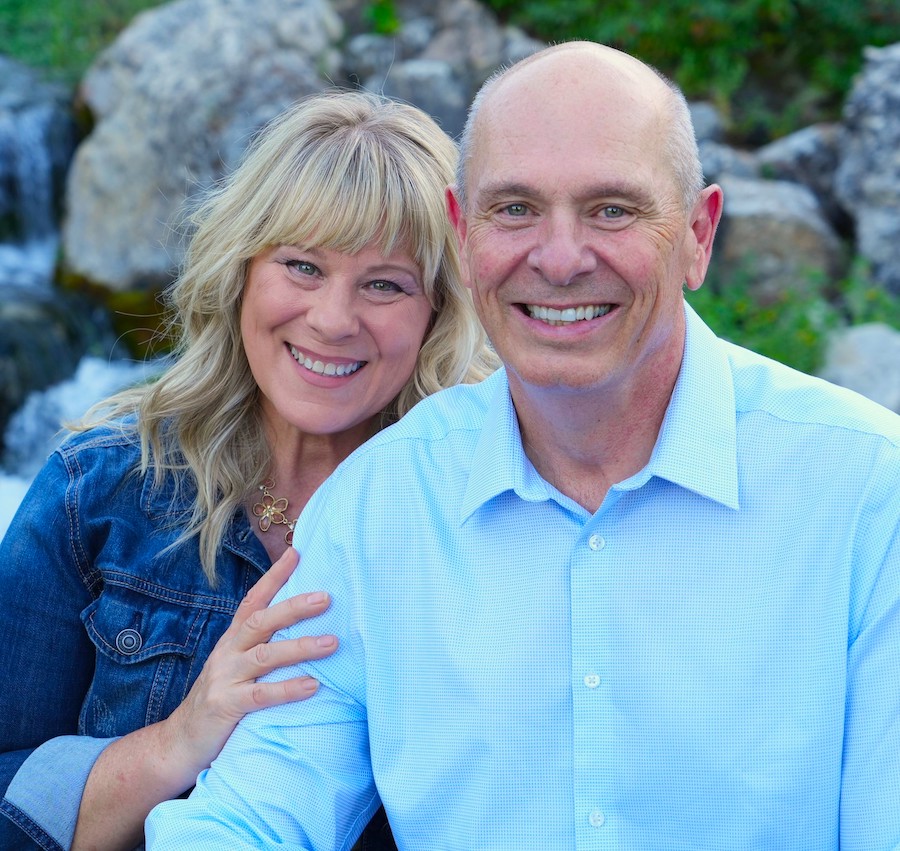
Monte LeLaCheur and his wife, Amy Jo LeLaCheur, have recently stepped down after serving 29 years as the senior pastors at Turning Point Open Bible Church in Spokane, Washington. Monte graduated from Open Bible College in 1978 and received his master’s degree in counseling from Whitworth University in 1980. He has served on both the national board for Open Bible Churches and the Pacific Region board and is looking forward to the next season of his life and ministry.

Spiritual direction…hmmm, sounds like what I get from the Holy Spirit when I pray, so why would I need to meet with a spiritual director when I can do this on my own? Seems unnecessary, right? Not to mention, I’m a guy; we never ask for directions.
That was my thinking a few years ago, until the day I got a call from another minister who was training to be a spiritual director. She needed to log a certain number of practice hours to finish her training, and she asked if I would be her “guinea pig.”
The call had “coincidentally” come in the middle of a challenging season; my pastoral duties felt relentless, and I was going through a profound life change. I felt empty inside as I wrestled with a nagging question: “Am I really hearing God clearly?” Unable to talk through my struggle with very many people, I had been feeling spiritually stuck. The person calling was someone I trusted, so I agreed to be a part of her training process. I thought I was helping her out, but little did I know this decision would stand as a cornerstone of my spiritual and mental health moving forward.
Spiritual direction is like having a wonderful (dare I say, sacred) friend who walks alongside you and gently guides you to notice and respond to the presence of God in your life.
Spiritual direction is like having a wonderful (dare I say, sacred) friend who walks alongside you and gently guides you to notice and respond to the presence of God in your life. Believe it or not, even the best of us can miss Him in the middle of our emotional and mental upheavals. Unlike traditional counseling or mentorship, spiritual direction focuses on deepening our relationship with God, helping us become more aware of His presence in our everyday experiences.
A Transformative Encounter: Experiencing the Father Three Ways
There’s one spiritual direction session that particularly stands out in my mind. My mom had just passed away, and my dad was in the final stages of his life. It had been a tough year of loss, and I was doing my best to keep it together. As I shared with my spiritual director, she made a suggestion. She said, “Gary, take the next ten minutes to sit before the Father and ask Him what He wants to say to you in this season.”
I muted the microphone, sat in silence, and stared out the window of my office into my backyard. It was a beautiful day, and the wind was rustling through the trees. Things moving by some unseen force. As I sat there, God reminded me of three snapshots (memories) with my dad. The first was a memory of being at the beach with him when I was four and his taking me into the deep water. I remember protesting that I didn’t want to go out there but also feeling safe because I was held tightly in my father’s arms. The second was a memory of when I was twenty and we took a trip together. It was on that trip that I felt my father, through his actions, take his mantle of authority and leadership and place it on my shoulders. The third snapshot wasn’t a true memory but a glimpse into the future. I was about to visit my dad in a month – it was to say goodbye as he was in the final stages of life on earth. My agenda was simple: I was just going to spend time with Dad.
In those pictures, with the wind blowing through the trees, the Father used my father to help me encounter Him. I’ll never forget the three things God whispered to me as I pondered those three snapshots:
Gary, I’m with you; you’re safe.
Gary, I’ve given you everything you need to fulfill what I’ve called you to do; I trust you.
Gary, all I desire is for you to spend time with me and enjoy my presence.
Those past and future joys were a reminder from my heavenly Father that I could take the path ahead because He was with me. I’m not sure I would have had such a profound experience had it not been for the preceding conversation with my spiritual director and our subsequent debrief.
Integrating Spiritual Direction into Pastoral Ministry
Moments in this and following sessions have been a game changer for me, helping me become a better leader and follower. I now approach decisions with a greater sense of grounding, choosing to rely on prayerful discernment and feedback from someone who’s spiritually mature and not emotionally tied to the situations. I’ve also learned to listen better, not just to God but also to people.
Spiritual direction has been a transformative experience for me, helping me grow both personally and professionally.
Spiritual direction has also been a huge help with my mental health. Regular sessions provide a sanctuary from the incessant demands of ministry and allow me to process those stressors in a safe context. I’ve learned to be more resilient, thanks to the reflective exploration of my spiritual journey, and I feel more balanced and purposeful.
If you’re a minister who hasn’t tried spiritual direction yet, I highly recommend it. Here are a few things to keep in mind:
- Find a spiritual director who’s trained to help others on their spiritual journey.
- Make sure you prioritize regular meetings. Consistent engagement allows for a deeper unfolding of your spiritual narrative and allows for sustained growth.
- Be open and vulnerable. Don’t be afraid to talk about the good and bad parts of your spiritual life.
Spiritual direction has been a transformative experience for me, helping me grow both personally and professionally. Remember, we all need help sometimes.
About the Author

Gary Kahn
Gary Khan was born on the island of Trinidad in the Caribbean. He moved to America when he was twenty to pursue his education and calling to be a pastor. He met his wife DeLaine at Eugene Bible College (now New Hope Christian College) and upon their graduation, they were married and began working at Desert Streams Church in Santa Clarita, CA. After thirty-two years as a pastor, Gary became an Executive Director of Operations for Marketplace Chaplains. He is the author of devotionals including Reset and Greater and his most recent book, That Didn’t Turn Out the Way I Thought.

On the fifth day of creation, our wonderful God showed himself in a brand new way. He began to create the living creatures that walk among us. This expression of His creation has shown itself throughout history; from Noah’s dove, to Balaam’s donkey, to Jonah’s whale and Daniel’s lions, God has continued to use animals in His grand plan and purpose.
We can still use these animals as a metaphor for God’s love and guidance. One notable example comes from Bob Sjogren’s book Cat and Dog Theology: “A dog says, ‘You pet me, you feed me, you shelter me, you love me, you must be God.’ A cat says, ‘You pet me, you feed me, you shelter me, you love me, I must be God.’”
As true as this may be, something wonderful happens when the molds break.
[God] certainly doesn’t want to drag us from one destination to the next. He would rather we follow Him willingly, eager to remain in His presence.
In our family, we recently experienced an interesting phenomenon when it came to our pets. To understand the story better, you need to understand our animals. Ralphie is our young, spirited Maltipoo. He has never met a stranger he didn’t love. He is sweet, loyal and in many ways the ideal companion.
Then we have our chihuahua, Sally. We found Sally roaming our neighborhood in 2014 with no tags and no microchip. She had obviously been mistreated, and when I took her to the vet, they found so many things wrong with her that I was advised, “Don’t be in a huge hurry to find her owner.”
We cleaned Sally up, and two weeks later she was legally ours. While she is affectionate to us and our kids, to this day, if I lift my hand to give her a pat on the head, she winces as if I am going to hit her (something I have never done and never intend to do).
Ralphie and Sally’s unique natures show themselves on our nightly walk around the neighborhood.
Ralphie tries his hardest to pull on the leash and run ahead. He so desperately wants to lead whoever is holding the leash that he nearly chokes himself on his collar. (We’ve had to switch to a harness.) He is unaware that he is only eight pounds, and his actions make little to no difference in the direction we are going.
Sally, however, must be practically dragged throughout the walk. She is timid and afraid to take a step that she isn’t sure is safe.
It’s quite a sight to have such different dogs reacting to the same thing.
Witnessing this phenomenon gave me pause, and I couldn’t help but think what a picture this is for the diverse ways we respond to the Holy Spirit’s leading in our lives.
So many people are like Ralphie. They try to tell God where they want to go without any regard to His guidance. They would rather choke themselves on their own will than listen to what He has to say. Others are like Sally and struggle to fully trust the Lord. For them to move, the Holy Spirit must practically drag them to the next place.
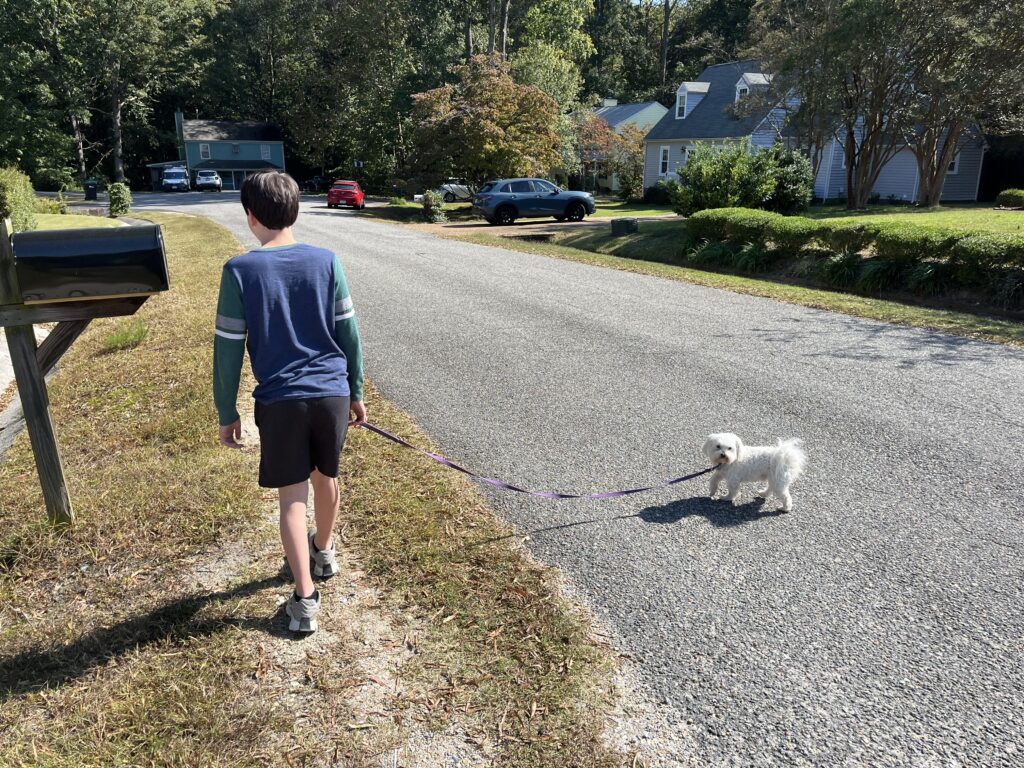
It sounds like a simple premise, but so many followers of God fall into these two opposite extremes. People miss their destinies when they act like Ralphie and Sally.
But there is another pet in our household whom I have not told you about. His name is Caesar, and he is an old, wise cat. We got Caesar the year we were married, and he lived up to his noble name every chance he got. Years ago, on our nightly walks with the dogs, Caesar began doing something amazing.
By his own free will, he would simply follow us on our walks. No need for a leash. No need for us to coax him. He just followed our gentle guidance every night for the mere purpose of being with us. Every now and then we would have to call his name, but he was always nearby.
I believe that in a world full of Ralphies and Sallys, God would rather we be like Caesar. The Lord doesn’t want us to tell Him where we are going rather than let Him lead, and He certainly doesn’t want to drag us from one destination to the next. He would rather we follow Him willingly, eager to remain in His presence.
In Matthew 8:18-22, two men express a desire to follow Jesus. The first is overly eager, not knowing what he is getting himself into. Jesus gives him a stern warning, explaining that he doesn’t know what he’s asking. The second man hesitates and says he needs to bury his father first. We never learn the fate of either man, but I hope they both abandoned their natural tendencies and learned to faithfully follow.
Whether you struggle with being too aggressive on your journey with God or whether you’re entirely too scared to take another step, I believe we can all grow in learning to be led
After sixteen years of being our cat, Caesar died peacefully this past March, but not before we had gotten a kitten named CJ. CJ is full of life and extremely playful. She was always so intrigued by our old friend Caesar that she started following him everywhere he went, even if it meant a walk around our neighborhood.
Caesar indirectly made a disciple with our young kitten, who now follows us on our walks every night. Despite how aggressive Ralphie wants to be or how timid Sally is, we now have CJ, just following along wherever we go.
Whether you struggle with being too aggressive on your journey with God or whether you’re entirely too scared to take another step, I believe we can all grow in learning to be led. If we will stay close to Jesus, we cannot help but fulfill His destiny for our lives.
About the Author
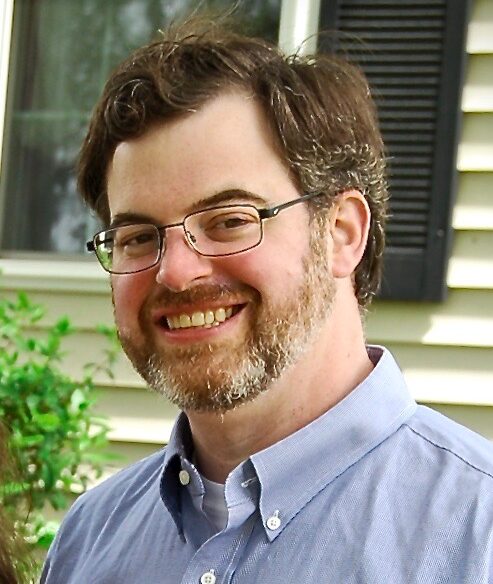
Bill Francavilla
Bill Francavilla is the lead pastor at Living Hope, an Open Bible church in Williamsburg, Virginia. Having lived in Virginia nearly his entire life, he attended Lynchburg College, where he studied history and theater. In 2017 Bill received his master’s degree in theological studies from Liberty University. He has been active in missions to Mexico, Dominican Republic, and Cuba. He and his wife, Jessica, have four children: Alex, Liam, Rita Grace, and Gino.

I am Shane Blackledge, and my wife Amber and I are the founding pastors of Cultivate Church in St. Louis, Missouri. My story is one of transformation and God’s grace, showing how He can use anyone to build His kingdom.

I was born in Colorado at the Air Force Academy Hospital. My father served in the Vietnam War, and while stationed in Taiwan, he met my mother and they got married. When I was six, my parents separated, and my mother moved back to Taiwan, leaving me devastated. As a kid, I faced racism and extreme poverty. I battled depression, anxiety, and thoughts of suicide. I started smoking and drinking at eight years old, joined a gang at age thirteen, and was using meth daily by the time I was fourteen.
At age seventeen, I was arrested and sentenced to thirty years in prison for selling drugs. I found myself in my jail cell wanting to end it all. On my night stand I found a Gideon Bible, and I opened it right to John 3:16. As I sat there reading, I realized I was a sinner, but that God created me and I had a purpose to live. I repented and asked Jesus to forgive me. I felt the Father’s love and the presence of the Holy Spirit in an indescribable way.
After my release, I struggled transitioning back into society (finding a job, paying rent, and finding a church that would accept me). I was discouraged and soon relapsed on meth. During the years of my addiction, I was sent to five prisons and was incarcerated for over six years. In 2006, after nearly dying from an overdose, I woke up from a coma and realized God had saved me from death. That day I fully surrendered to Christ, and that’s when my real transformation began.
In 2006, after nearly dying from an overdose, I woke up from a coma and realized God had saved me from death
God restored what addiction had taken from me. I have now been clean from meth for seventeen years. In 2013, I married Amber. We started attending Waverly Life Church, served as youth leaders, and eventually started a Celebrate Recovery program. In 2022, God called us to plant Cultivate Church in St. Louis, Missouri. We resigned from all ministries and jobs and sold our home. In April of 2023, we started house church gatherings which quickly grew in Christ and numbers. We launched our first Sunday gathering in October of 2023.
Today, we are a church without walls, modeled after the early church in Acts. We have regular church gatherings geared towards discipleship, street ministry, addiction recovery, Christian hip-hop events, prison ministry, and nursing home visits. We work with local treatment centers and recovery programs to support and mentor people. We have partnered with churches and ministries to organize monthly inner-city mission trips.
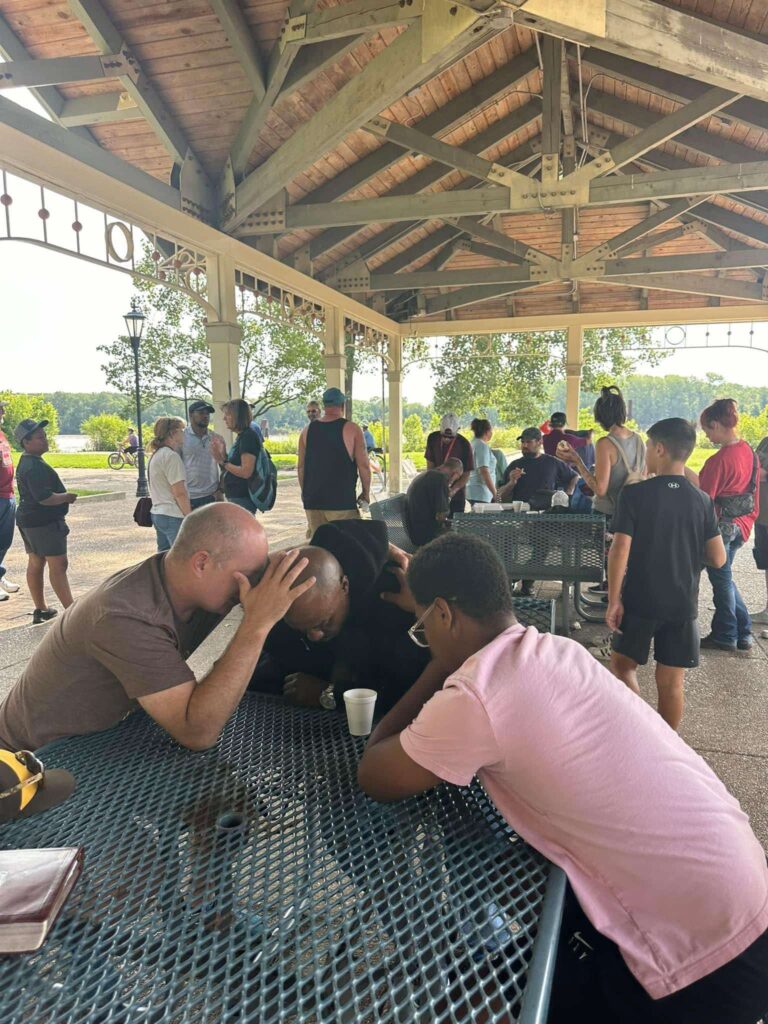
One way God has used my story is with my podcast: “Kingdom Minded,” which streams into 1000 prisons across the country on over one million inmate tablets. In partnership with the Edovo learning app, the podcast focuses on sharing testimonies and teaching Biblical principles.
Looking back, I am amazed at what God has done. In just a year our church has grown from a small group in our living room to a thriving community, passionate about sharing God’s love. Amber and I are excited about the future. We believe God is just getting started with Cultivate Church.
He can use anyone, even a former addict and convict like me, to build His kingdom.
My story and the story of Cultivate Church are really about God’s faithfulness. He can use anyone, even a former addict and convict like me, to build His kingdom. All the glory goes to Him.
To donate toward our prison ministry and homeless outreach, visit wearecultivatechurch.org or check out our Blessing Bags Gift Registry at HERE.
About the Author
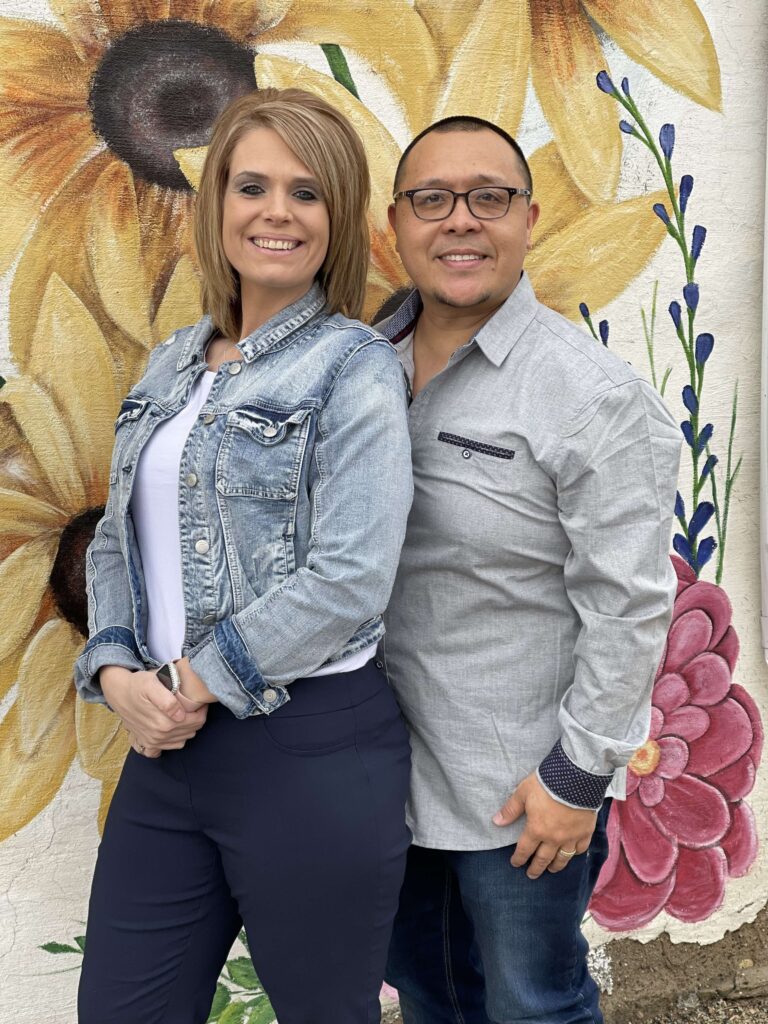
Shane R. Blackledge
Shane R. Blackledge is the co-founder and senior pastor of Cultivate Church. He and his wife Amber started Cultivate Church in their home in 2023. Today, the church is known for spreading the Gospel and being the church without walls. Shane’s podcast, “Kingdom Minded,” is available in over 1000 prisons on inmate tablets on the Edovo Learning App. Through testimonies and Bible principles, the podcast aims to teach, inspire, and equip Christians to live their best life now. Shane is an author and speaker, and his books From Prison to Purpose and Overcoming Codependency are available on Amazon. Shane and Amber have four children and live in St. Louis, Missouri.




